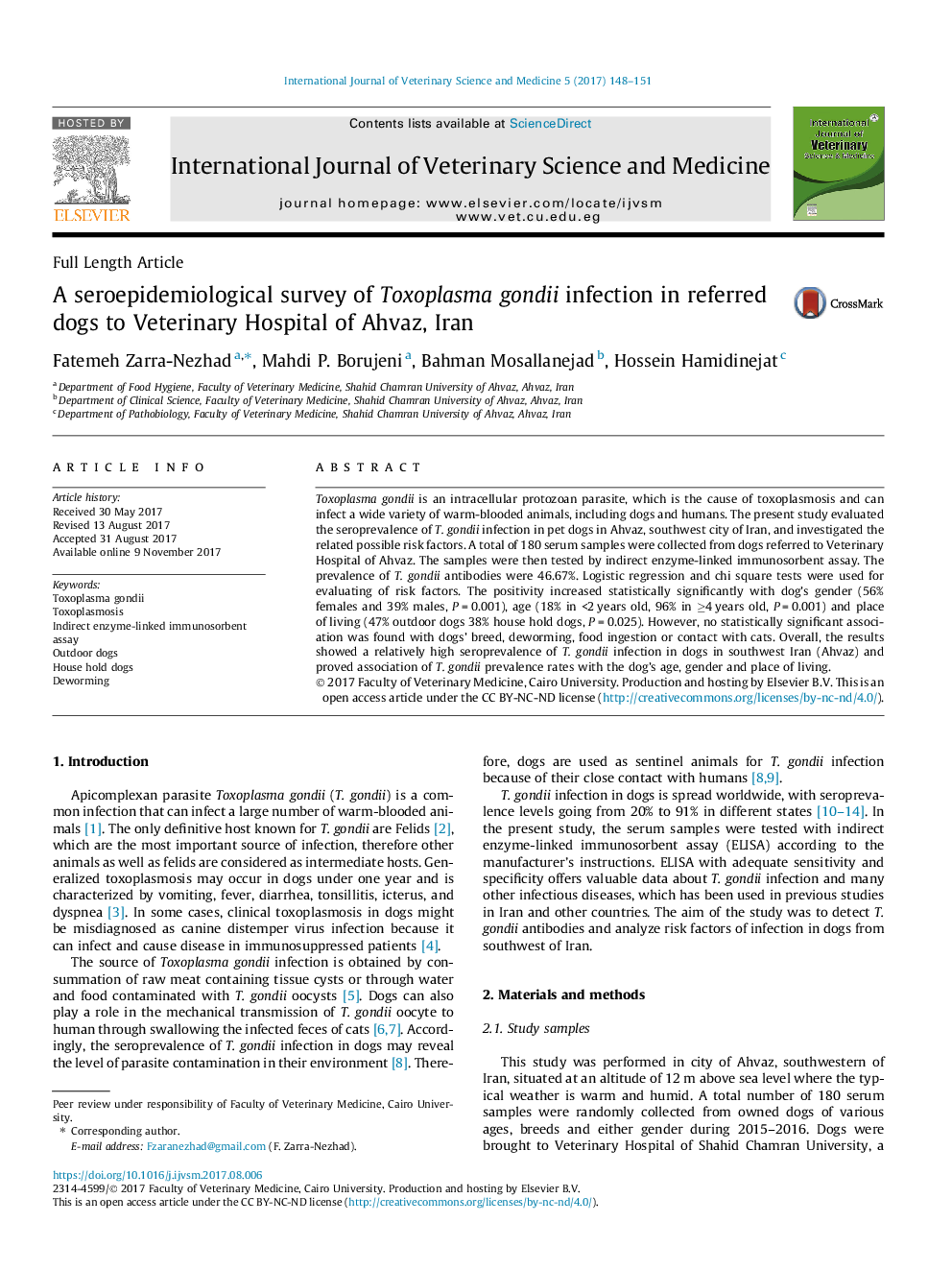| Article ID | Journal | Published Year | Pages | File Type |
|---|---|---|---|---|
| 8482334 | International Journal of Veterinary Science and Medicine | 2017 | 4 Pages |
Abstract
Toxoplasma gondii is an intracellular protozoan parasite, which is the cause of toxoplasmosis and can infect a wide variety of warm-blooded animals, including dogs and humans. The present study evaluated the seroprevalence of T. gondii infection in pet dogs in Ahvaz, southwest city of Iran, and investigated the related possible risk factors. A total of 180 serum samples were collected from dogs referred to Veterinary Hospital of Ahvaz. The samples were then tested by indirect enzyme-linked immunosorbent assay. The prevalence of T. gondii antibodies were 46.67%. Logistic regression and chi square tests were used for evaluating of risk factors. The positivity increased statistically significantly with dog's gender (56% females and 39% males, P = 0.001), age (18% in <2 years old, 96% in â¥4 years old, P = 0.001) and place of living (47% outdoor dogs 38% house hold dogs, P = 0.025). However, no statistically significant association was found with dogs' breed, deworming, food ingestion or contact with cats. Overall, the results showed a relatively high seroprevalence of T. gondii infection in dogs in southwest Iran (Ahvaz) and proved association of T. gondii prevalence rates with the dog's age, gender and place of living.
Related Topics
Health Sciences
Veterinary Science and Veterinary Medicine
Veterinary Medicine
Authors
Fatemeh Zarra-Nezhad, Mahdi P. Borujeni, Bahman Mosallanejad, Hossein Hamidinejat,
